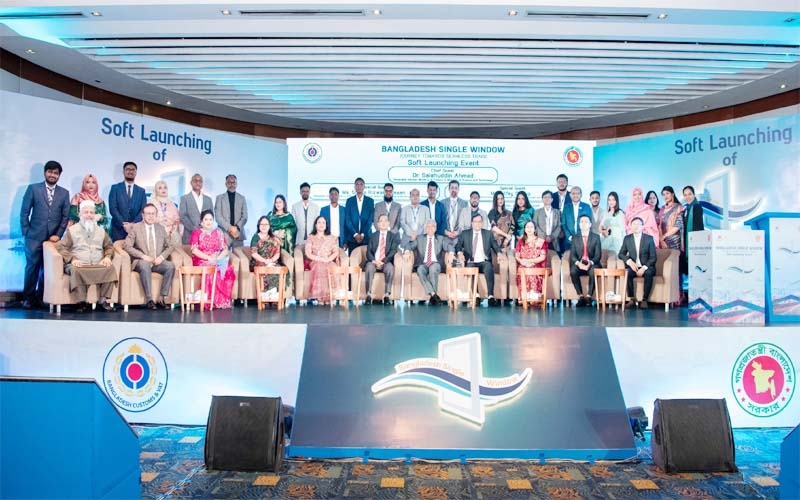- Bangladesh stocks end week higher on upbeat mood |
- BDR name will be restored, army won't be used for politics: Tarique |
- Hili land port highway upgrade delayed again, cost Tk 588cr up |
- Tarique vows quick execution of Teesta Master Plan if elected |
- How Undecided voters May Decide the Election |
Bangladesh Single Window to Launch by March: Lutfey Siddiqi

Professor Lutfey Siddiqi, Special Envoy on International Affairs to the Chief
Adviser, announced that the Bangladesh Single Window (BSW) will become operational by
March 2025, streamlining import and export processes for businesses.
“Seven out of 19 certificate, license, and permit (CLP) issuing organisations will be integrated into the system in the first phase. Manual submissions for these seven agencies will cease after January 31, 2025,” he stated at a symposium on economic reforms at the Bangabandhu International Conference Center (BICC) on Saturday.
The seven agencies include the Directorate General of Drug Administration (DGDA), Export Promotion Bureau (EPB), Department of Explosives (DoEX), Bangladesh National Authority for Chemical Weapons Convention (BNACWC), Bangladesh Economic Zones Authority (BEZA), Bangladesh Export Processing Zones Authority (BEPZA), and the Department of Environment (DoE).
The remaining 12 agencies are expected to join the platform by February. Importers and exporters can register on the BSW using their Business Identification Number (BIN) and digitally submit all required documents. The system will allow users to obtain necessary CLPs and complete customs clearance on a single online platform.
The announcement was made during the second session of the symposium titled
"White Paper and Thereafter: Economic Management, Reforms, and National
Budget." The session was moderated by Dr. Debapriya Bhattacharya, Chair of
the "White Paper 2024" and Distinguished Fellow at the Centre for
Policy Dialogue (CPD).
Professor Mustafizur Rahman, Distinguished Fellow at CPD, highlighted that Bangladesh lost an
estimated $16 billion annually between 2009 and 2023 due to
illicit financial outflows. These funds were funneled into tax havens, real
estate purchases abroad, and shell companies.
He urged the government to allocate resources for asset recovery, including
forensic investigations and hiring global experts. Strengthening institutions
like the Bangladesh Financial Intelligence Unit (BFIU), National Board of
Revenue (NBR), and the Task Force on Stolen Asset Recovery is essential, he
added.
Dr. Tasneem Arefa Siddiqui emphasised that Bangladeshi migrants face the
highest migration costs in Asia, often taking up to 17 months to
recover these expenses. She revealed that recruitment syndicates siphoned off
$2 billion between 2021 and 2024, transferring Tk 1.34 trillion through
unofficial channels for visa purchases.
Tasneem called for declaring a "Migration Decade" and allocating
at least 1% of the national budget to improve migration governance and support
migrants and their families.
Dr. M Tamim, Vice Chancellor of Independent University Bangladesh, criticised
the misuse of the Quick Enhancement of Electricity and Energy Supply
(Special Provision) Act 2010, which he said facilitated corruption and
nepotism in awarding contracts for 42 power plants, with an estimated $3
billion lost to underhanded deals.
Experts, including Dr. Selim Raihan of the South Asian Network on Economic Modeling (SANEM), stressed the need for budgetary provisions to strengthen institutional capacity, enhance digitalisation, and improve data analytics within the NBR.
Tasneem urged the government to negotiate with Malaysian authorities to extradite key individuals behind recruitment syndicates and allocate more resources to Bangladesh’s highest foreign exchange-earning sector—labour migration.
The symposium underscored the importance of addressing corruption, illicit outflows, and systemic inefficiencies to foster sustainable economic growth.

